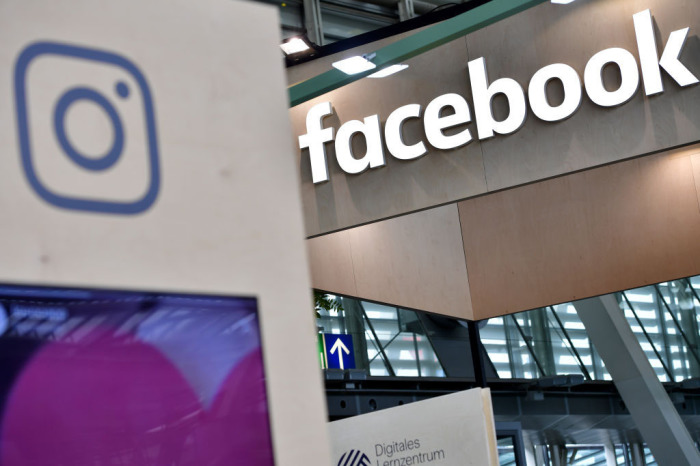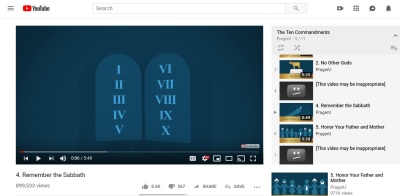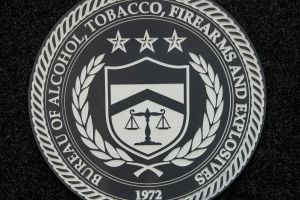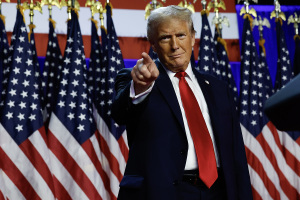Justice Department proposes rolling back content protections for big tech companies

The U.S. Department of Justice released a report on Wednesday recommending that Congress pass a law rolling back a longstanding legal protection for big tech companies regarding content control.
The DOJ report critically examins Section 230 of the Communications Decency Act of 1996, which gives immunity to tech companies from civil liability regarding content added or removed to their online platforms.
This immunity, according to the DOJ, “has left online platforms both immune for a wide array of illicit activity on their services and free to moderate content with little transparency or accountability.”
“Reform is important now more than ever,” states the report. “We must ensure that the internet is both an open and safe space for our society.”
Rather than eliminate the section, the DOJ recommended “a measured yet significant recalibration of Section 230 immunity” which would “clarify and restore the original objective of the statute and give clearer guidance to platforms and courts.”
Among the recommendations, the DOJ report advises deleting the phrase “otherwise objectionable” to Section 230’s list of content that platforms can censor with immunity.
“The vagueness of the term ‘otherwise objectionable’ risks giving every platform a free pass for removing any and all speech that it dislikes, without any potential for recourse by the user,” the DOJ report continues.

Last month, President Donald Trump signed an executive order denouncing “selective censorship” by social media websites, saying it was “harming our national discourse.”
“Twitter, Facebook, Instagram, and YouTube wield immense, if not unprecedented, power to shape the interpretation of public events; to censor, delete, or disappear information; and to control what people see or do not see,” read the order.
“Tens of thousands of Americans have reported, among other troubling behaviors, online platforms ‘flagging’ content as inappropriate, even though it does not violate any stated terms of service; making unannounced and unexplained changes to company policies that have the effect of disfavoring certain viewpoints; and deleting content and entire accounts with no warning, no rationale, and no recourse.”
For years, conservative groups and individuals have charged that Facebook, Twitter and Google-owned YouTube have been unfairly targeting them for censorship, temporary suspensions, demonetization, and other punishments.
For their part, social media platforms have responded that these incidents tended to be mistakes in their programs and often have sought to remedy the situation.
During a Senate hearing last year, Neil Potts, public policy director at Facebook, denied that there was an overt “political bias” at the social media company, but admitted that an “unconscious bias” likely exists at Facebook.
“There is the room for unconscious bias that we do not recognize,” he said, adding that at the San Francisco headquarters of Facebook “we would probably have more liberals or people who identify as Democrats than we do as Republicans.”
At the same hearing, Carlos Monje, director of public policy at Twitter, denied that an anti-conservative bias exists at the company and said some politically progressive users had expressed similar complaints.
“We honored the ideas that were part of the Honest Ads Act and agree with the idea that political advertising should be more transparent,” Monje said at the time.
“In the process of setting that up, a number of accounts got caught up in that. It included three current Democratic candidates for president and a major national pro-choice group.”
In February, a three-judge panel of the U.S. Court of Appeals for the Ninth Circuit ruled against the conservative group PragerU in its lawsuit against Google and YouTube.
The panel unanimously concluded that YouTube could censor conservative content if it wanted to because as a private forum, the video-sharing site was not bound by the First Amendment.
“Despite YouTube’s ubiquity and its role as a public facing platform, it remains a private forum, not a public forum subject to judicial scrutiny under the First Amendment,” concluded the court.
“PragerU runs headfirst into two insurmountable barriers—the First Amendment and Supreme Court precedent. Just last year, the Court held that ‘merely hosting speech by others is not a traditional, exclusive public function and does not alone transform private entities into state actors subject to First Amendment constraints.’”




























